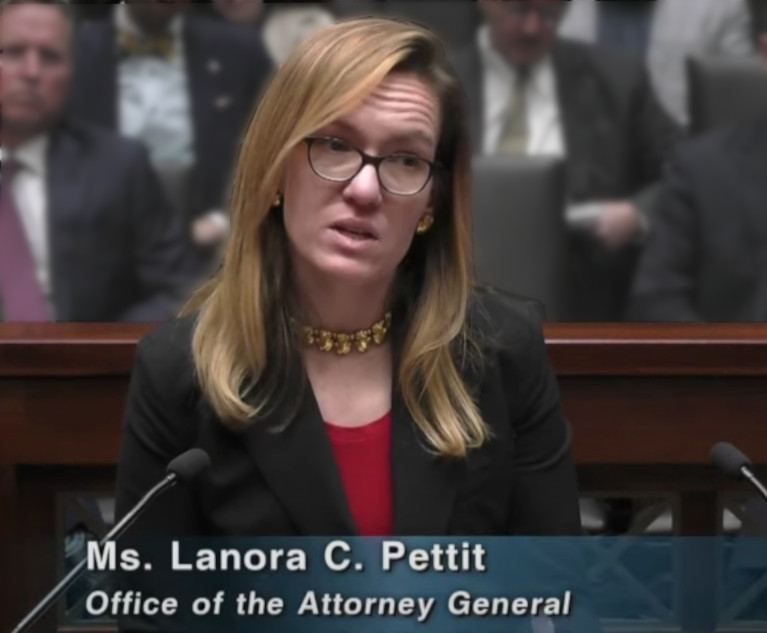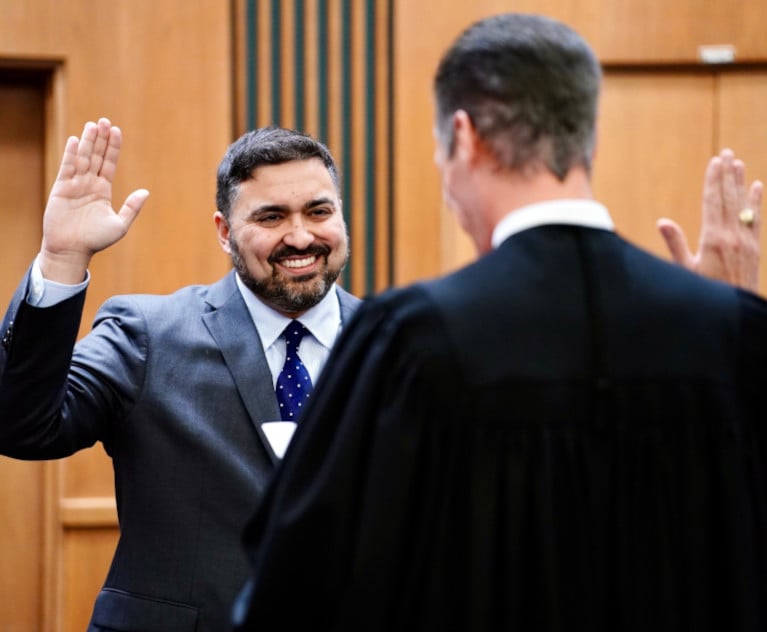Court Orders Refund for Defendant in So-Called Pay-to-Plea System
"We are confident that any policy requiring a defendant to fully pay any fines and court costs before being allowed to enter a plea and begin community supervision is no longer in practice in Kinney County," the Fourth Court ruled.
August 06, 2019 at 10:31 AM
4 minute read
 Kinney County Attorney Todd Durden (Photo: Courtesy Photo)
Kinney County Attorney Todd Durden (Photo: Courtesy Photo)
A rural Texas prosecutor has successfully ended a local misdemeanor judge’s so-called pay to plea system that forced criminal defendants to prepay their fines and court costs before pleading guilty.
Although the end of “pay to plea” didn’t follow the exact procedure that Kinney County Attorney Todd Durden had requested, he said he’s completely satisfied with the outcome.
“It’s actually very appropriate,” Durden said. “Generally, a court will do what it has to do to avoid overkill and use the appropriate use of the court’s power.”
Durden wanted mandamus relief from San Antonio’s Fourth Court of Appeals after alleging that Kinney County Judge Tully Shahan violated due process and Texas law by requiring the prepayment of court costs and fines, before scheduling a plea hearing for criminal defendants.
The mandamus petition also said 63rd District Judge Enrique Fernandez—appointed as a visiting judge to adjudicate after Shahan recused himself—abused his discretion in a DWI case involving Bracketville resident Maria Cervantez. In that case, Fernandez only refunded $500 of the $897 in costs and fines Cervantez had prepaid before her case was dismissed.
The Fourth Court issued partial mandamus relief, ordering Fernandez to vacate his previous refund order and issue a new one to refund the rest of the money. Fernandez, who didn’t return a call seeking comment, issued a July 31 order to refund all of Cervantez’s money.
Del Rio solo practitioner Ruben Nino, who represents Cervantez, said he expects her to visit the courthouse Monday to see if Kinney County has issued the refund check.
The Fourth Court refused to grant relief on Durden’s second claim that Shahan abused his discretion by using the so-called pay to plea system, the July 24 opinion said.
Shahan on June 18 issued an order that said prepayments were improper under the law and that fees, fines and costs could be collected only after a conviction. Shahan ordered the court clerk and county treasurer to refund prepaid funds to defendants.
Although Durden asked the Fourth Court to vacate Shahan’s June 18 order, the court found his reasons had no merit. The opinion said that Shahan’s order had mooted the conflict over “pay to plea.”
“We decline relator’s request to compel Judge Shahan or any other judge in Kinney County to develop new policies or local rules of administration,” the opinion said. “Relator complains about a specific policy, which has now been eliminated. We are confident that any policy requiring a defendant to fully pay any fines and court costs before being allowed to enter a plea and begin community supervision is no longer in practice in Kinney County.”
Robert T. “Bob” Bass, partner in Allison, Bass & Magee in Austin, who represents Shahan, said that he agrees it’s improper to collect funds in advance of a plea.
“We have vacated the practice. That was a practice initiated by the county attorney’s office and continued by Mr. Durden for 20 months. I find it less than convincing he’s doing it for another reason that it allegedly advances his causes against Judge Shahan,” said Bass.
Durden disputes that the county attorney’s office started “pay to plea,” and counters that it was Shahan’s practice. He said he’s been working to end the practice for nearly two years, and he’s satisfied to see it change.
Cervantez’s attorney, Nino, said he’s also satisfied with the outcome, but he’ll have to wait and see if it’s a permanent fix.
“Hopefully the practice is in the past and will stay in the past and will not be repeated,” he said. “They have complied today. Tomorrow is another day.”
Related stories:
Texas Judge Accused of Pay-to-Plea Shakedown Ends System, But County Attorney Presses for Relief
This content has been archived. It is available through our partners, LexisNexis® and Bloomberg Law.
To view this content, please continue to their sites.
Not a Lexis Subscriber?
Subscribe Now
Not a Bloomberg Law Subscriber?
Subscribe Now
NOT FOR REPRINT
© 2025 ALM Global, LLC, All Rights Reserved. Request academic re-use from www.copyright.com. All other uses, submit a request to [email protected]. For more information visit Asset & Logo Licensing.
You Might Like
View All


Trending Stories
- 1Public Notices/Calendars
- 2Wednesday Newspaper
- 3Decision of the Day: Qui Tam Relators Do Not Plausibly Claim Firm Avoided Tax Obligations Through Visa Applications, Circuit Finds
- 4Judicial Ethics Opinion 24-116
- 5Big Law Firms Sheppard Mullin, Morgan Lewis and Baker Botts Add Partners in Houston
Featured Firms
Law Offices of Gary Martin Hays & Associates, P.C.
(470) 294-1674
Law Offices of Mark E. Salomone
(857) 444-6468
Smith & Hassler
(713) 739-1250







